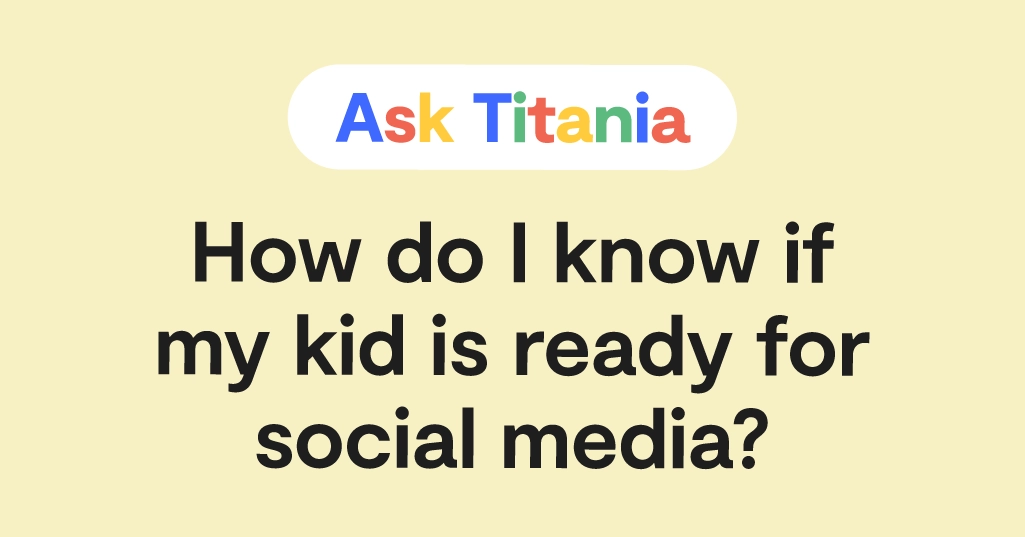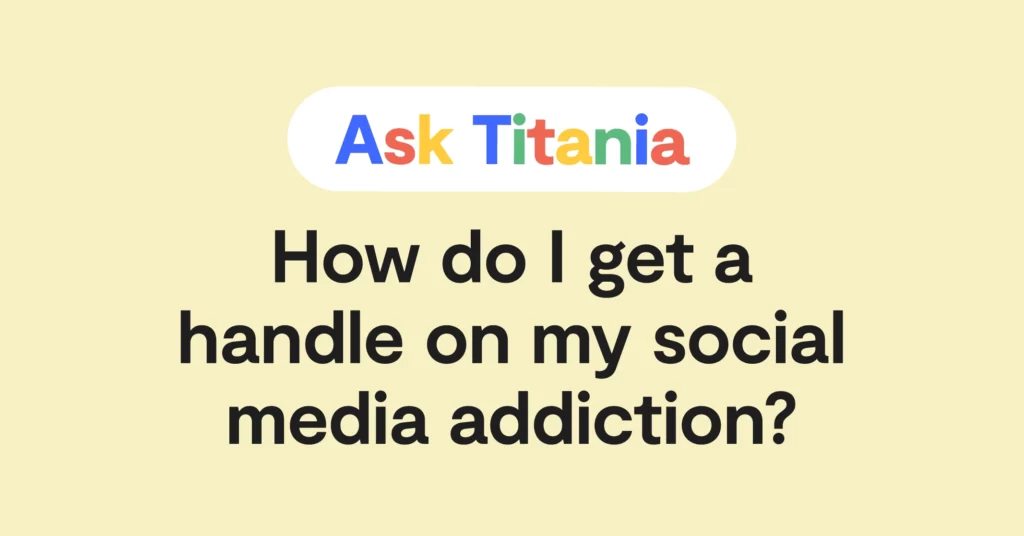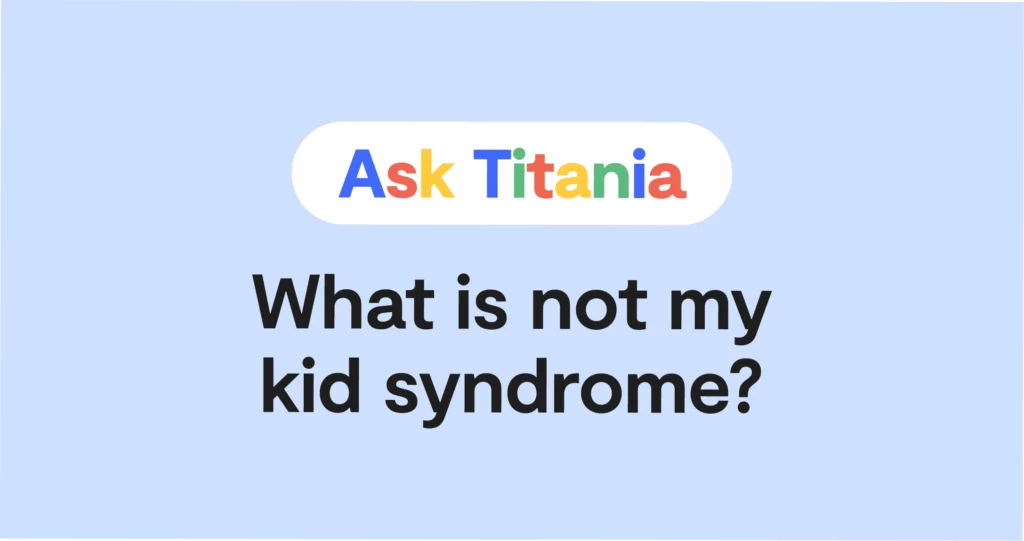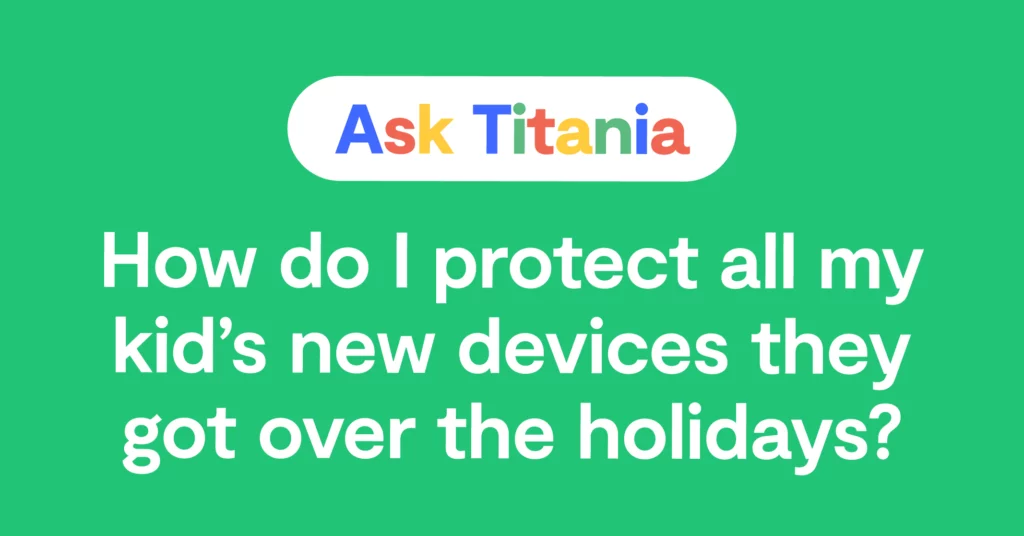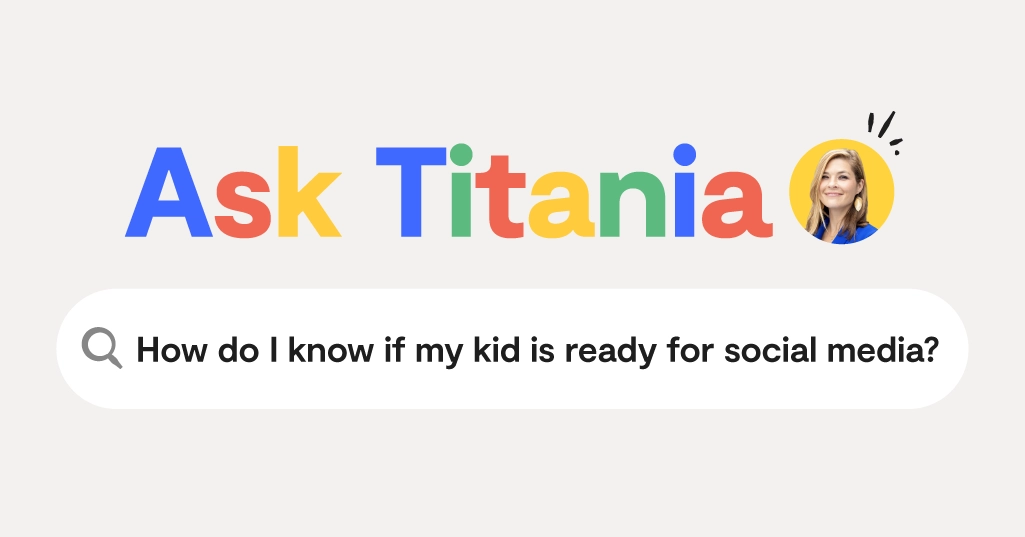
Dear Titania,
My son is turning 12 soon, and I was wondering when most parents start thinking about social media. How do you know when they’re ready? Is it ever a good idea? I know every family’s values are different, but I figure he’ll eventually want to experiment with social media, and I want to set my kid up for success — and help keep him safe.
Signed,
Worrying Way in Advance
Dear Worrying Way in Advance,
First, I commend you on thinking ahead! Some parents allow full access and worry later, then have to deal with putting the toothpaste back in the tube. Social media is a tricky thing, and some kids are definitely more into it than others.
To begin with, nearly every social media platform has strict social media age restrictions with a minimum age requirement of 13. Of course, this isn’t the age at which kids magically become capable of handling the intense psycho-social effects of social media — it’s just an agreed-upon number that the tech companies came up with. Also, many, many kids simply fudge their age when signing up. And most apps don’t do anything to make this process more stringent.
All this to say, social media before 13 is definitely not a good idea — and honestly, social media after 13 is probably not a good idea, either. The longer you can wait, the better.
In all of my years talking to parents about kids and technology, nobody has ever expressed regret about requiring their children to be a little older before giving them the keys to the social media world. For those who let go too soon, they usually realize it would have been beneficial to wait. There’s even a movement called Wait Until 8th, which advocates for parents to not only push social media use but even smartphone use until eighth grade.
Talk to Your Kid About Social Media and What They Think About It
The first experience most kids have with social media is usually through their parents — they see you posting and talking about Instagram or Facebook. Some kids may even have hundreds of photos of themselves on your social media, so they’re not unaware of the role it plays in people’s lives.
Your letter doesn’t mention that your son is terribly interested in it, yet. This means he probably doesn’t feel the pull like some kids do. This makes sense, as every kid is different. But many parents start hearing requests and demands as early as 10 or 11, which can make the conversation a little different. In your case, you can play offense instead of defense, giving you the ability to lead the conversation.
Here are a few conversation starters to get you going:
- “How popular is Instagram or TikTok among your classmates?”
- “What are the main ways your friends chat and make plans online?”
- “Are there any social media apps that interest you?”
- “Have you witnessed any drama at school because of social media?”
- “Do you think social media is generally good or bad for kids?”
Things to Consider Regarding Maturity
The checklist for figuring out whether a kid may be ready for social media is a little different than deciding if they’re ready for a phone. Phones are important for safety, location, communication, and school work. Social media, on the other hand, is entirely a privilege. Some very mature 14-year-olds could be perfectly fine on social media, while I know some 40-year-olds who still can’t handle it.
Of course, some kids may adamantly argue that it’s absolutely necessary for a social life, but that’s still not a convincing argument for some families.
To gauge whether your child may be emotionally equipped to handle the potential stresses that come with social media, consider the following:
- Does your child seem secure in their friend group? Fear of missing out (FOMO) is real and can make kids feel bad about themselves.
- Do they exercise self-control when online in other ways, i.e., following screen time rules?
- Have you talked to your child about cyberbullying and how to act appropriately online?
- Consider the app they want. Having TikTok to watch silly dog videos is different from wanting Snapchat to send disappearing messages to friends.
- Does your child have fairly good self-esteem? Social media can exacerbate feelings of low self-worth and introduce kids to content that can negatively affect them, like videos about dieting and disordered eating.
- Have you talked about stranger danger and how people online aren’t always who they seem? Unfortunately, it's not uncommon for some kids to get manipulated into dangerous relationships with predators on social media.
Start Slow, and Monitoring Is Absolutely Essential
When you decide the time is right to introduce social media —whatever your child’s age — it’s a good idea to start with one and only one. When you decide which one, make sure you research it and understand thoroughly how it works and all of the potential pitfalls. Many apps have Family Pairing features that can connect your accounts so you can keep an eye on what they’re doing and who they’re talking to. Keep in mind, though, that kids can turn these features off at any time.
I also strongly recommend monitoring with an app like Bark, providing parental control for social media apps by scanning digital activities for concerning issues. On a Bark Phone or with an Androids with the Bark app installed, you’ll get alerts for potential dangers in popular platforms like Instagram, TikTok, and Snapchat. Here’s a full list of what Bark monitors on different apps and platforms.
How Bark Can Help
Bark’s award-winning monitoring can help you learn what’s going on in your child’s life, and it helps you keep them safe. You’ll get alerts for potential dangers like bullying, suicidal ideation, online predators, and signs of disordered eating. This way you can check in and make sure everything’s okay.
Bark also lets you block apps you’re worried about. You can even set super granular screen time limits. For example, you could make it so your kid could only access Instagram from 5 to 7 p.m. every day while you’re in the living room together.
Good luck! Social media is a new rite of passage for both our kids and our generation of parents — something entirely new in the history of humans. If you need some extra help explaining to your kid why you’re rightfully concerned about all the possible dangers, sit down together and watch Childhood 2.0, a free documentary about raising kids in the digital age.
Read more
Bark helps families manage and protect their children’s digital lives.


